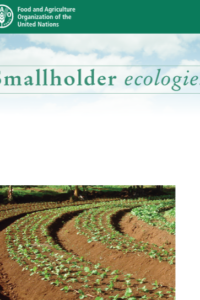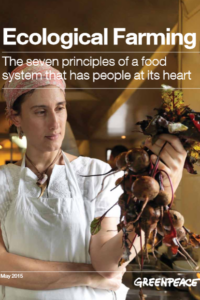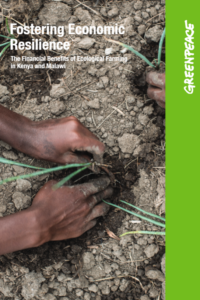Abstract: Global food and agriculture systems face a series of inter-related challenges; to assure food security for a growing world population while supporting decent livelihoods and reducing the environmental footprint of agriculture. Agroecological approaches can address these challenges by contributing to a greener economy. Agroecological systems are diverse, highly inter-connected and perform multiple functions that benefit society. They place a strong emphasis on environmental integrity and social well-being. Moreover, the groecological mode of production is highly efficient and resilient to disturbances.
This document provides a review of the scientific literature on agreocology, including global, regional, national and local studies. In the Annex, the performance of various agroecological management systems are described and compared. Based on these findings, key steps towards an agroecological transition are outlined
Ecological Farming – The seven principles of a food system that has people at its heart
We are living with a broken food system. It needs to be replaced urgently for the benefit of all people, and the planet. Greenpeace’s Food and Farming Vision describes what Ecological Farming means, and how it can be summarised in seven overarching, interdependent principles – based on a growing body of scientific evidence.
REPORT | Fostering Economic Resilience. The Financial Benefits of Ecological Farming in Kenya and Malawi
The evidence in this report suggests that it is more profitable for small-scale farmers in Africa to practise ecological farming that uses no chemical pesticides or fertilisers than it is to use chemicals. Presenting the results of new fieldwork in Malawi and Kenya, this report shows that farmers practising agroforestry (involving the use of natural ‘fertiliser trees’
instead of chemical fertilisers) and ‘Push-Pull’ technology, which eliminates the need for chemical pesticides) achieve higher incomes and yields than those practising chemical-intensive agriculture.





